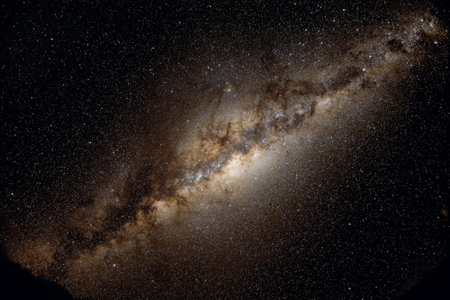Astronomer Discovers Planets That Don’t Have Orbits. Que?!

There’s a lot of complicated shit in a recent astronomy article that my limited attention span can’t keep track of. What I can tell you after skimming it is this, apparently some fucking planets don’t have orbits. Outstanding.
io9:
The central bulge of the Milky Way was looking a little too bulky for Notre Dame astronomer David Bennett. Or rather, it was looking a bit bright. They amount to the same thing, thanks to gravitational microlensing. Gravity bends light, but it’s such a weak force that you can’t tell the difference unless there’s a star or large planet whose gravity is doing the bending. In space, the light from a star goes off in all different directions. However, if there is a planet, or other star, directly in front of a background star, it bends light that would be going outwards back towards the observer.
It’s a little like collecting rain water. On a flat surface, the water is evenly distributed. Cut a sloping trench in the earth, and the path of the water will be bent, causing it to collect in one larger stream at the center of the trench. Gravitational lensing causes a brightening – a large, collected stream of photons – from a background star when a heavy object passes in front of it.
Bennett directed telescopes toward the center of the Milky Way and found a lot of lensing – probably from large planets. The technique has been used to find exoplanets before. They bend the light of the star they orbit when they pass between that star and earth observatories. But these new examples of lensing did not happen right next to stars. They happened out in the vastness of space. Crunching the data showed that Jupiter-sized planets were doing the lensing, but they weren’t orbiting any stars. They were just floating free. It’s been shown that in crowded solar systems, two planets can interact gravitationally, causing one planet to lose energy and fall towards the sun. These planets were created when one planet got an extra kick of energy and spun out, away from its solar system.
Bennett’s data showed evidence for at least ten of these starless planets. There may be just as many starless planets as there are stars. And given that gravitational lensing only works with large planets, we may never know how many small, Earth-sized planets are floating through space on their own.
Poor planets, drifting aimlessly without a sun to hold them in its warm embrace. Embarking upon a galactic journey without friend or foe nearby. Pretty dope.



